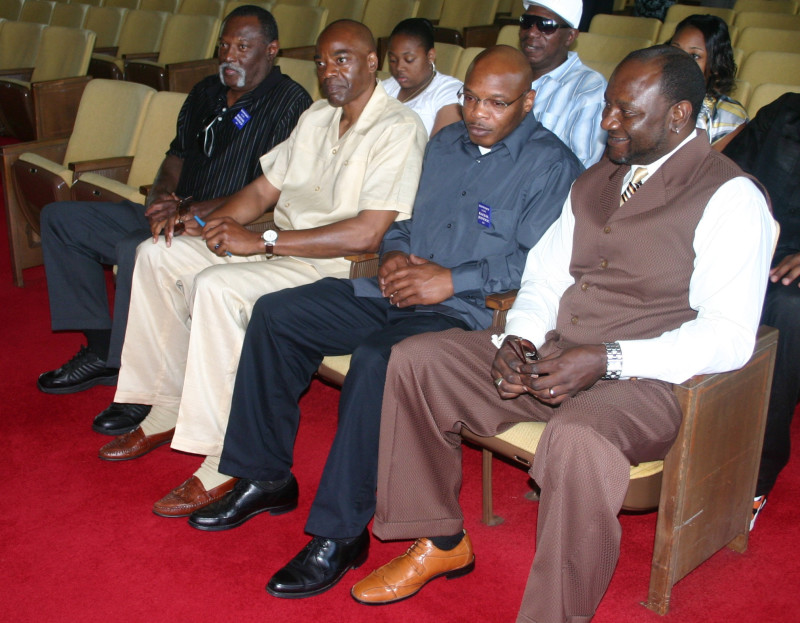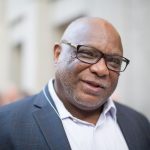Meet James Williams, an esteemed attorney who joined CDPL in 2018 to coordinate racial equity projects. His commitment to ending racial disparities has been a driving force during his 40-year legal career. Learn more about James.
Read CDPL’s statement on James’ work to remove Confederate monuments from North Carolina courthouses.

One result of racial bias in the courtroom is the conviction of the innocent. From left, Levon Jones, Jonathan Hoffman, Ed Chapman, and Darryl Hunt, all served years for crimes they did not commit and faced the death penalty.
In the first half of the Twentieth Century, capital punishment replaced extrajudicial lynchings as a state-sanctioned tool of racial oppression. Despite decades of efforts to reform the American death penalty, it remains firmly rooted in that past. Research shows that defendants convicted of killing white victims still face odds of being sentenced to death that are three times greater than for those convicted of killing a person of color. The odds of receiving a death sentence increase even more for defendants of color who kill white victims.
The voices and experiences of Black citizens are intentionally excluded from capital sentencing. Prosecutors in capital cases strike qualified Black jurors from serving on juries at more than twice the rate of white jurors, and more than 40 percent of death row prisoners in North Carolina were sentenced to death by juries that had one or no persons of color. Prosecutors and defense attorneys in capital courtrooms also remain overwhelmingly white. Of the seven innocent people known to have been wrongly sentenced to death in the modern era of North Carolina’s death penalty, all but one are African-American.
These disparities are inherently linked to our nation’s long history of racial oppression: Jim Crow laws that excluded African Americans from jury service and other civic rights; Black Codes that provided different punishments depending on the race of the perpetrator or victim; and the institution of slavery itself, which permitted white owners to do with their human property as they saw fit. [Read CDPL’S comprehensive project, Racist Roots: Origins of North Carolina’s Death Penalty.]
In light of these facts, CDPL has created a racial equity mission statement to guide its work.
CDPL is committed to exposing and challenging the racial bias inherent in the death penalty and to building an organizational culture of racial equity in all aspects of our work, from litigation and investigation to public education and advocacy. To that end, we recognize the following:
- The death penalty is both a vestige of our nation’s racist past and a continuing source of racial inequity.
- Racism in our culture is not only individual but structural, systemically advantaging white people while predictably producing cumulative and chronic adverse outcomes for people of color.
- Our personal racial identities and experiences inevitably shape the ways we see the world, interact with others, and approach our work.
- Racial bias is frequently implicit; individuals of all races are susceptible to such bias and may not be consciously aware that they hold racist assumptions and beliefs; and implicit bias can produce racially disparate outcomes to the same, or greater, extent as explicit bigotry.
- The problem of racism is pervasive but not insurmountable. Conscious and deliberate efforts towards racial equity can make a difference.
It is the role of CDPL’s racial equity team to provide leadership for and support to our racial equity efforts and to suggest and implement changes consistent with racial equity principles. All staff and board members are encouraged to participate in ongoing racial equity training and to demonstrate the principles of racial equity through deliberate action, respectful dialogue and continued self-reflection. We envision a racially diverse cadre of advocates, both within and outside our organization, teaching and learning from one another. CDPL seeks to recruit attorneys with diverse experiences and backgrounds who are committed to furthering CDPL’s racial equity goals.

